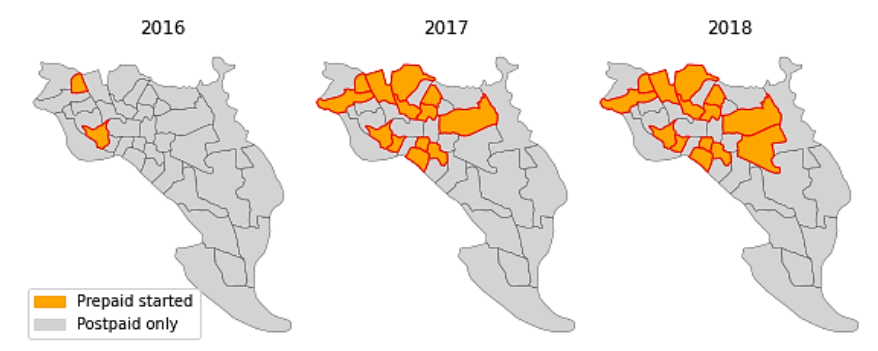Analyzing current prepaid and past postpaid consumption data of Dhaka south’s electricity users

- Measuring the change in payment and consumption behavior due to the replacing of conventional postpaid meters to prepaid meters.
- Analyzing the consumption data of households before and after prepaid meter intervention and comparing them with households who are still using old meters.
- We found prepaid meters effectively reduced payment delinquency. Further analysis on consumption is still under progress.
Publication:
S. B. Rabbani, A. A. Ali and M. Zaber, “Does Electric Prepaid Meters Decrease Payment Delinquency? Evidence from Data Centric Analysis of Electricity Consumption in Dhaka, Bangladesh” in IEEE Region 10 Symposium (TENSYMP), Dhaka, 2020
Abstract— Prepaid electricity meters are favored by power distribution companies to improve revenue collection, debt prevention and ensure customer satisfaction. In this paper, we investigate changes in bill payments pattern of customers in Dhaka, Bangladesh who had switched from post to pre-payment meters. We collected postpaid bill and prepaid recharge payment data over there years. We specifically look into payment behavior of residential household customers to understand the effect of prepaid meters on payment delinquency. Analysis of postpaid bill indicate that at least 32% households skipped paying one or more bills over a period of one year. Households consuming 100-300 KWH accounts for almost 51% of the total delinquent households. After prepaid switch, approximately 46% of all households are making prepayments every month. 52% of households who skip paying bill and 45% of households who pay bill after due date, at least once, are now recharging every month. Overall the technological intervention shows considerable reduction of retail debts and a behavioral shift towards on time payment.
